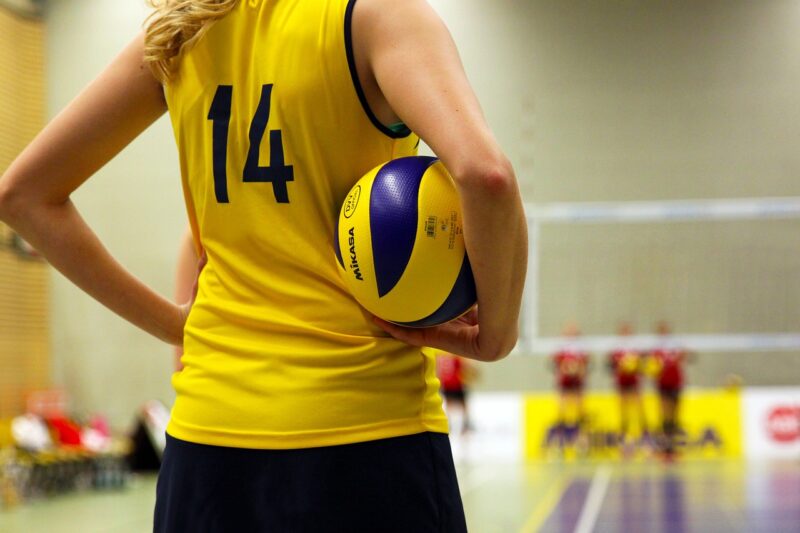The Best Sports for Beginners: Finding the Right Activity to Suit Your Lifestyle
November 13, 2024

Embarking on a new sports journey can be exhilarating yet overwhelming for beginners. With a myriad of sports available, it’s crucial to find the right activity that aligns with your interests, physical abilities, and lifestyle. This comprehensive guide explores various sports, highlighting the benefits of each, and provides tips for beginners to kickstart their athletic journey.
1. The Importance of Choosing the Right Sport
Choosing the right sport is essential not just for physical fitness, but also for mental wellness. The right sport should invigorate you and keep you motivated. Consider these factors when selecting a sport:
- Interests: What do you enjoy? Watching sports, playing games, or perhaps outdoor activities? Your interests will guide your choice.
- Physical Condition: Assess your current fitness level and any medical conditions that might affect your participation. Start with activities that accommodate your ability level.
- Goals: Are you looking to improve fitness, meet new people, or reduce stress? Identifying your goals will help narrow your choices.
Finding the right sport will not only enhance your physical health but also contributes to your overall happiness and well-being.
2. A Look at Popular Sports for Beginners
Here’s a closer look at some beginner-friendly sports:
a. Swimming
Swimming offers an excellent full-body workout and is gentle on the joints, making it ideal for beginners of all age groups. It’s an effective way to improve cardiovascular fitness and muscle strength. Furthermore, swimming can be enjoyed at your own pace and in various environments, from pools to natural bodies of water.
b. Cycling
Cycling is another fantastic beginner sport. Whether done in a gym or outdoors, cycling helps improve endurance, leg strength, and joint mobility. It’s also an enjoyable way to explore your neighborhood or parks. Joining a local cycling group can also help foster social connections.
c. Walking or Hiking
Walking or hiking is among the simplest forms of exercise and requires minimal equipment. Whether you choose an urban path or a challenging trail, hiking allows you to enjoy nature while improving your fitness level. It’s a great way for newcomers to ease into a more active lifestyle.
d. Yoga
Yoga is not only a workout but also a practice of mindfulness. It enhances flexibility, balance, and strength, making it well-suited for all fitness levels. If you prefer a low-impact activity, yoga provides both physical and mental benefits, promoting relaxation and stress reduction.
e. Team Sports: Basketball and Soccer
For those who thrive in group environments, basketball and soccer provide dynamic ways to engage both in physical activity and social interaction. These sports improve cardiovascular health, coordination, and teamwork skills. Many communities have leagues catering to beginners, ensuring a welcoming atmosphere.
3. Tips for Getting Started in Sports
If you’re ready to dive into a new sport, here are a few tips to make the transition smoother:
- Start Slow: Don’t push yourself too hard in the beginning. Allow your body time to adjust to the new activity to prevent injuries.
- Set Realistic Goals: Begin with achievable goals that can keep you motivated. Celebrate small victories along the way to build confidence.
- Join a Community: Many sports have groups or clubs that welcome beginners. Joining one can provide camaraderie and encouragement.
- Invest in Good Gear: Proper sports equipment can make a significant difference in comfort and performance. Always choose gear that fits well and is appropriate for your chosen activity.
- Listen to Your Body: Pay attention to how your body feels during and after activity. If you experience pain or discomfort, give yourself time to rest and recover before continuing.
4. Overcoming Common Barriers to Entry
While the decision to start a sport is exciting, many beginners face barriers such as:
- Lack of Time: Even with a busy schedule, it’s essential to prioritize physical activity. Trying to schedule short workouts or joining classes that fit into your availability can help.
- Self-Doubt: Remember that every athlete was once a beginner. Focus on personal progress, not comparison with others.
- Fear of Injury: Taking the right precautions and learning proper techniques can significantly reduce the risk of injury. Start with lower intensity and allow your body to adapt.
Overcoming these barriers requires persistence and a positive mindset. Remember, everyone’s fitness journey is unique.
5. Conclusion: Finding Your Sport
Beginning a new sport can open doors to a healthier lifestyle, endless enjoyment, and new friendships. By understanding your preferences, interests, and goals, you can determine which sport is right for you. Remember to take it slowly, set realistic expectations, and most importantly, have fun. Whether you choose swimming, yoga, or team sports, embrace the moment and enjoy the journey toward a more active you.
Take the leap today and find a sport that resonates with you; your future self will thank you for it!








